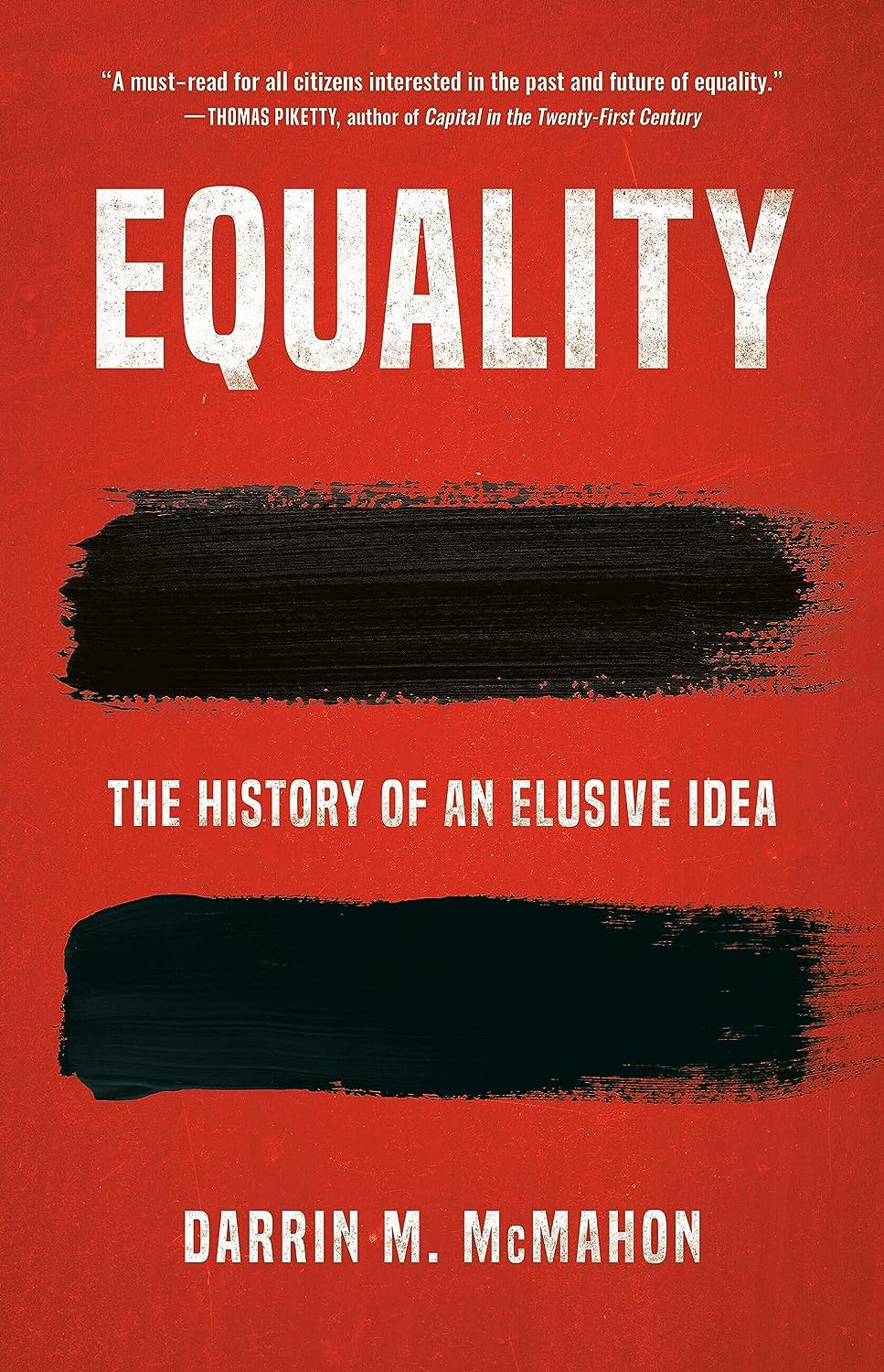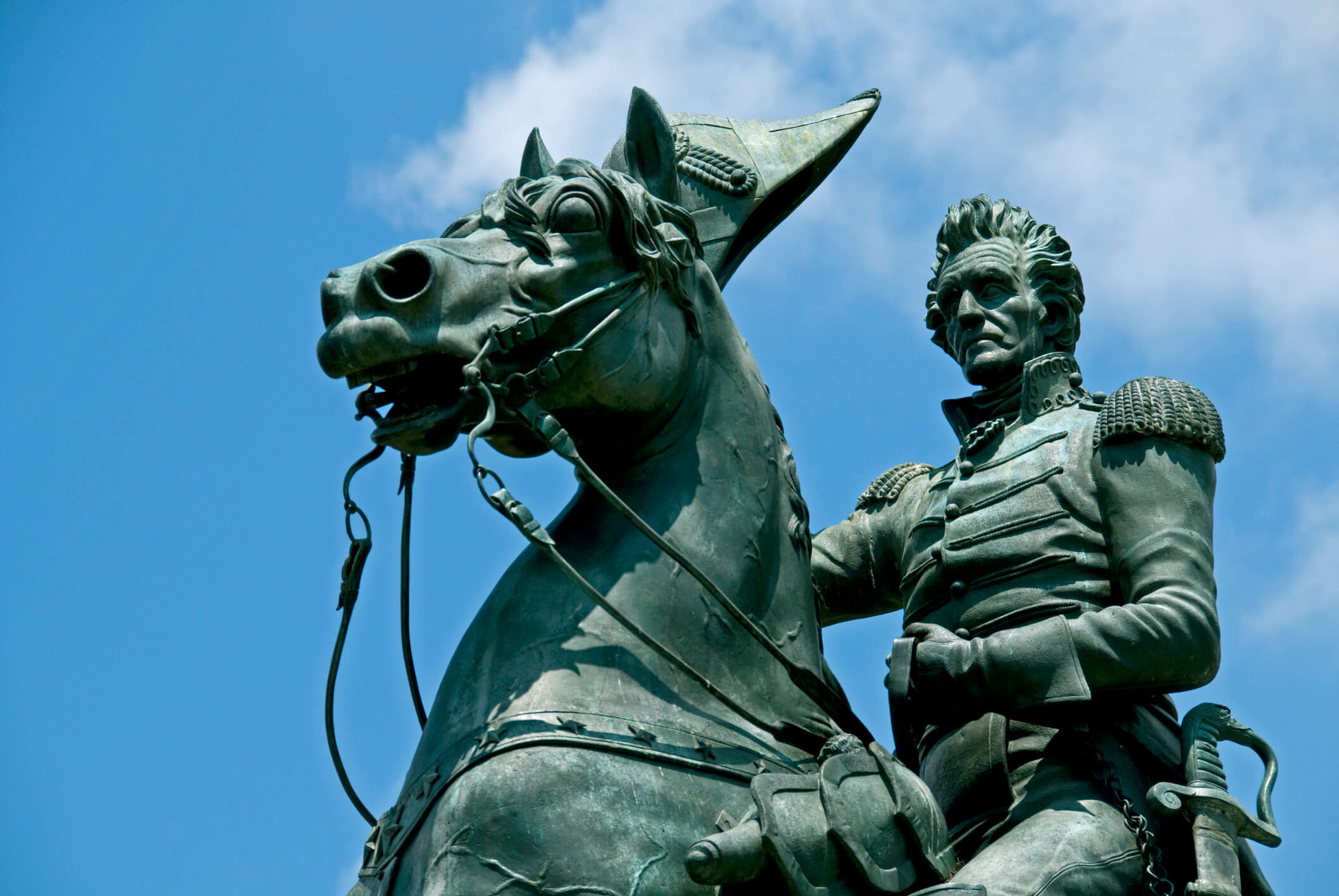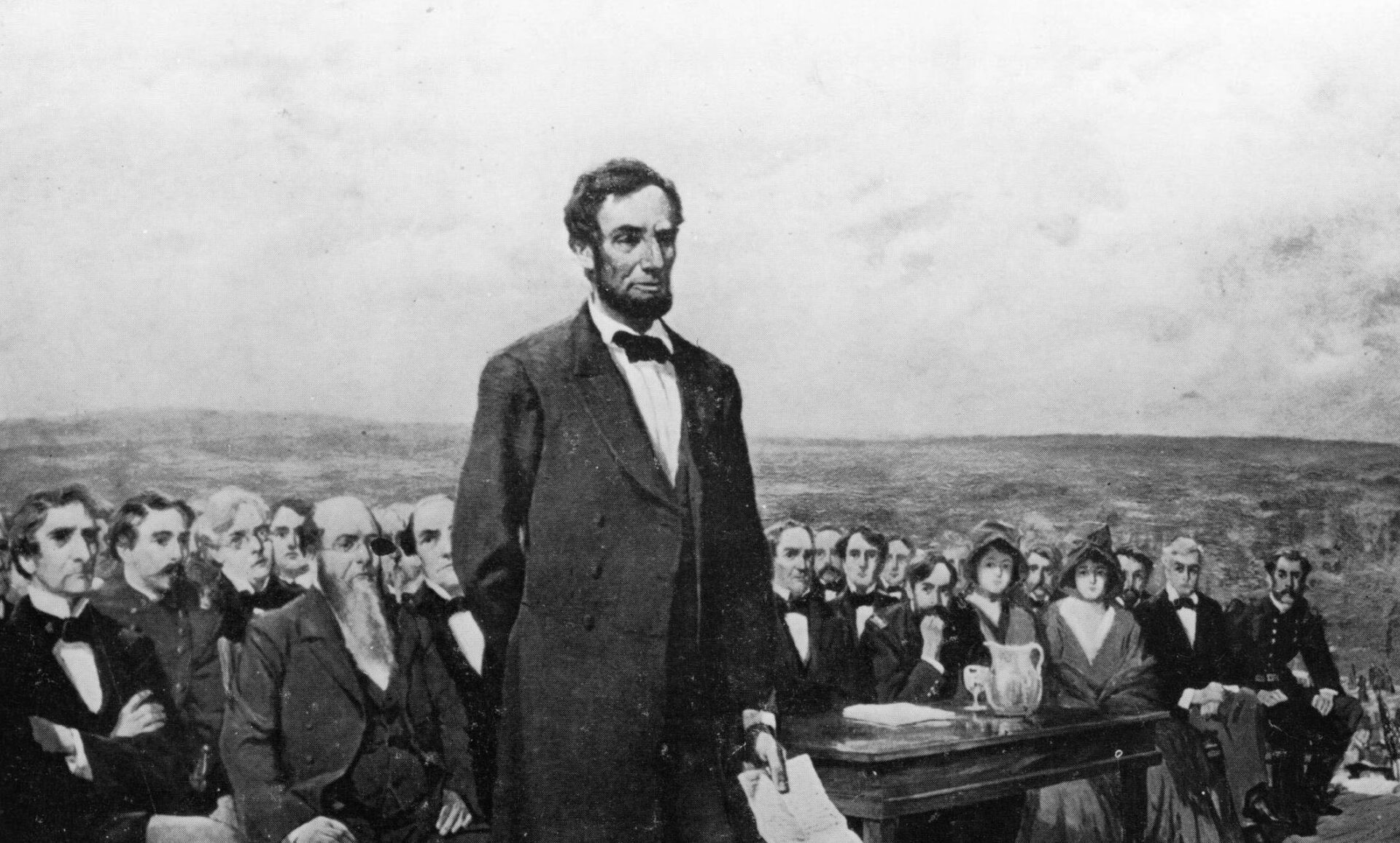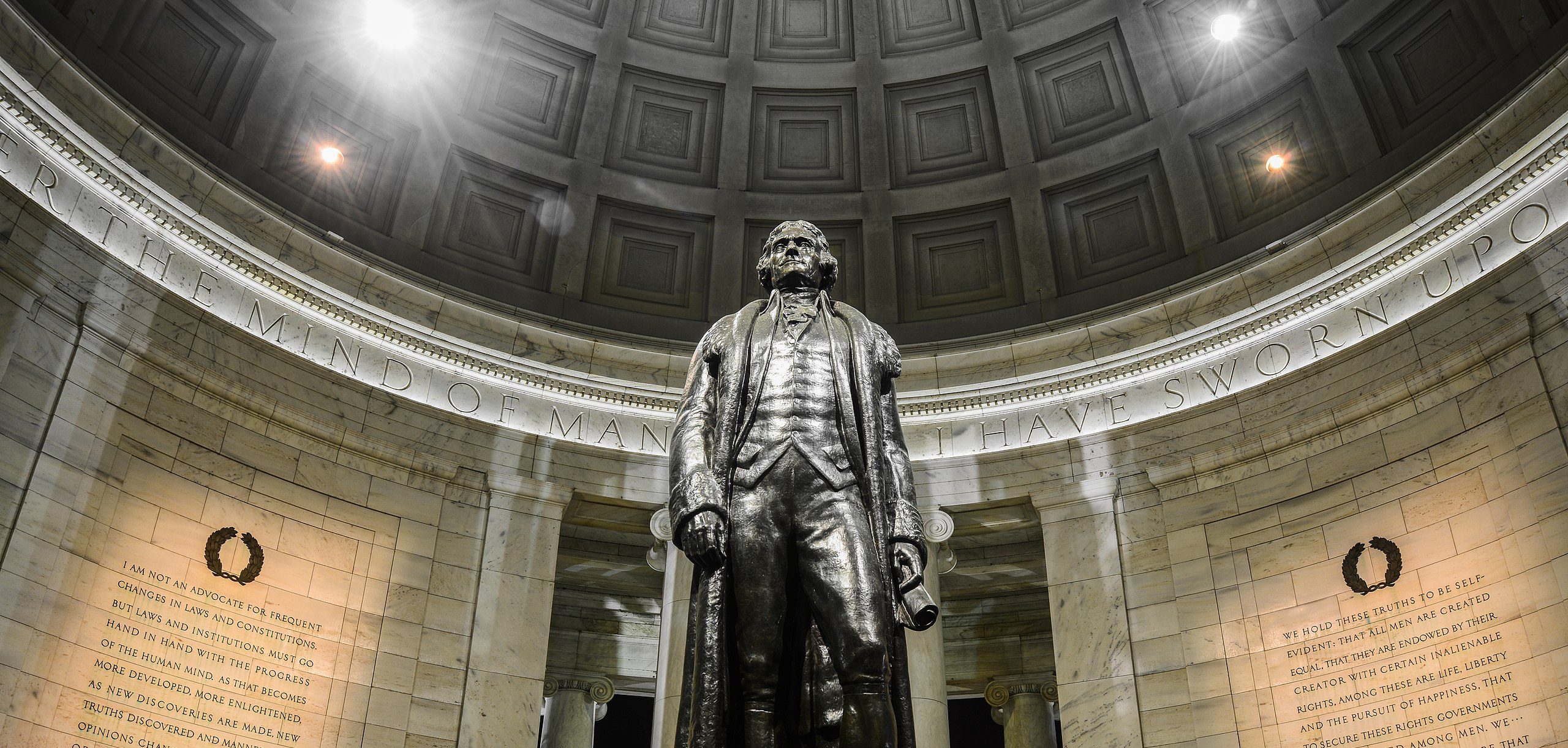Darrin M. McMahon’s new book offers a sustained reflection on the concept of equality—or, to be more precise, three sets of reflections. It provides a history of how different societies have understood equality; it advances theoretical claims about how the very concept of equality functions; and it makes a normative political plea for a more egalitarian world. The three sets of arguments—historical, theoretical, and political—are worth considering separately.
Equality succeeds as a work of history. McMahon doesn’t just recount the history of the idea of equality; he recounts the history of its practice as well. His narrative begins with the first human beings, our hunter-gatherer ancestors. Drawing on archaeology and anthropology, he follows recent scholarship in concluding that hunter-gatherers were probably fairly egalitarian and democratic. Leaders in hunter-gatherer societies were not allowed to accumulate too much power, he argues, and when upstarts tried to do so they were banished from the group or even murdered.
McMahon next explores the place of equality during the development of agriculture and the rise of the first states. He paints a bleak picture: the primordial equality of hunter-gatherer times was irretrievably lost. Early states centralized power and privilege in the hands of a tiny elite composed of priests, government officials, landowners, and merchants. These lucky few imposed slavery, toil, and subjugation on everybody else. Many early civilizations generated accounts of a golden age—examples can be found in Hesiod’s Works and Days and the Hebrew Bible—and McMahon interprets such tales of a paradise lost as a protest against civilization’s living conditions and a yearning for an idyllic hunter-gatherer lifestyle.
The rest of the book explores the places of equality in the thought and practice of various periods and societies, mostly, though not exclusively, Western ones. McMahon discusses the “Axial Age”—when what are now the world’s main religious and philosophical traditions came into being, from around 800 B.C. to 300 A.D.—ancient Greece, early Christianity, the Enlightenment and its revolutions (American, French, Haitian), nineteenth-century socialism, fascism, decolonization and the international system in the twentieth century, and post-1960s identity politics. The conclusion then turns to equality in the present.
The book’s theoretical and political arguments are not as strong as its history. The main theoretical lesson McMahon draws from his account of egalitarian ideas throughout time is that assertions of equality regularly functioned as a hierarchical premise, serving as the very basis for difference and distinction: “Philosophers might regret this, or regard it as going against equality’s ‘logic,’ but the fact remains that conceptions of equality can comfortably exist with beliefs and practices of a highly unequal kind, and frequently lend them foundation and support.”
But McMahon doesn’t distinguish between intentional and unintentional recreations of hierarchy. It’s one thing if a thinker comes up with a theory of equality with the conscious purpose of justifying another hierarchy. It’s something else if an otherwise egalitarian thinker unconsciously leaves some existing hierarchy unscathed. Most of the equality theories McMahon discusses seem to be examples of the latter. For instance, he charges the egalitarian theorists of the American and French revolutions with recreating racial and gender hierarchies. This is rather unfair: in most cases the conscious goal of Enlightenment proponents of equality was to challenge the aristocratic hierarchies of ancien régime Europe; hierarchies of race and gender were not criticized as directly or explicitly because they were not at the forefront of these intellectuals’ minds, not because their intention was to justify white male privilege.
McMahon’s claim that notions of equality frequently served as the basis for new hierarchies often seems unsupported by the evidence he presents. To take one example: he points out that many religious thinkers believed members of the community of the faithful were all equals in some sense— under the eyes of God, for instance—yet still held that some were more virtuous or upright than others. But those are two independent beliefs. Somebody can believe that God loves everyone equally and that some people live up to His moral commands better than others. The former belief is not the basis of the latter. There is no inconsistency or hypocrisy here. To believe that humans are equal in one respect is not necessarily to think that humans are unequal in a different respect. The two beliefs may well be logically unconnected.
McMahon also fails to make moral distinctions between different theories of equality and inequality. He writes as if all defenses of inequality were created equal, each just as bad as the rest. His typical approach is to take authors who believed that human beings were equal in some respects and indict them along the lines that they failed to pursue equality across the board; their theories of equality still exclude people, despite their pretensions to the contrary.
The worst example of this tendency comes in a brief comment about John Locke, whose “natural rights doctrine,” McMahon writes, was developed “in part to provide new justifications for slavery” because Locke “offered a rationalization of slavery in the case of captives taken in just war.” Locke in his Second Treatise did indeed defend the enslavement of captives taken in a just war, regrettably so. Yet one has to notice that Locke’s theory rules out all other forms of slavery—including hereditary slavery—as unjust, which implies that most of the slavery that existed in his lifetime was illegitimate in his eyes. To look at Locke and simply say that he criticized some hierarchies and excused others is to miss the heart of the matter: his theory of equality was profoundly antislavery in its implications and morally superior to much of the thinking about equality that came before it.
These distinctions undermine and complicate McMahon’s claim that egalitarian ideas have served as justifications for new exclusions. Despite all their limitations, our ancestors often managed to come up with theories of equality that made their world better in some respects, even if they did not make it fully just. When future historians treat the history of equality, they would do well to remember what some Germans in the town of Gotha wrote in a time capsule in 1784: “Do not look down on us with arrogance, if you stand higher and see further than we did; rather appreciate from [what] we have given you just how much we elevated and supported your fatherland. Do the same for your posterity and be happy.”
McMahon’s theoretical argument serves to set up the political argument with which he concludes the book. McMahon makes a plea for society to pursue equality while being “mindful of how our views of equality can serve to reinforce” inequality. “We hold it in our power,” he writes, to make hierarchies “less severe, and more fair.”
The thought seems to be that we should pursue equality without generating new inequalities in the process. But that’s not a helpful guide to political action. It suffers from the same problem as his theory of equality: it fails to distinguish between better and worse, or legitimate and illegitimate, forms of equality and inequality. A more reasonable starting point for political action would be to ask what justice requires when it comes to equality—it makes little sense to reduce inequality of every kind just for the sake of reducing inequality itself. McMahon may think that all inequalities are unjust, though he never says so explicitly. But some inequalities in power are clearly just: think of the inequalities between parents and children, teachers and students, doctors and patients, military officers and common soldiers, officials of legitimate state agencies and ordinary citizens. Other inequalities are at least arguably just: for instance, it seems just for inventors and entrepreneurs to receive large material rewards as a way to incentivize growth and innovation—which is not, of course, to say that their share of society’s wealth should be as unequal as it is today.
A commitment to the blanket reduction of inequalities threatens to undermine inequalities that are just, necessary, or beneficial. How do we distinguish between just and unjust inequalities? This has always been one of the central questions of political philosophy. One might begin to answer it by taking seriously the arguments of earlier generations. Many political theories of the past were indeed justifications for naked force, domination, and arbitrary hierarchy, for, as Nietzsche says, “that is the nature of human things: human violence and weakness have always played a mighty role in them.” McMahon senses this, but he misses the other side of the coin: some of the equality theories of the past may also have been on to something.















